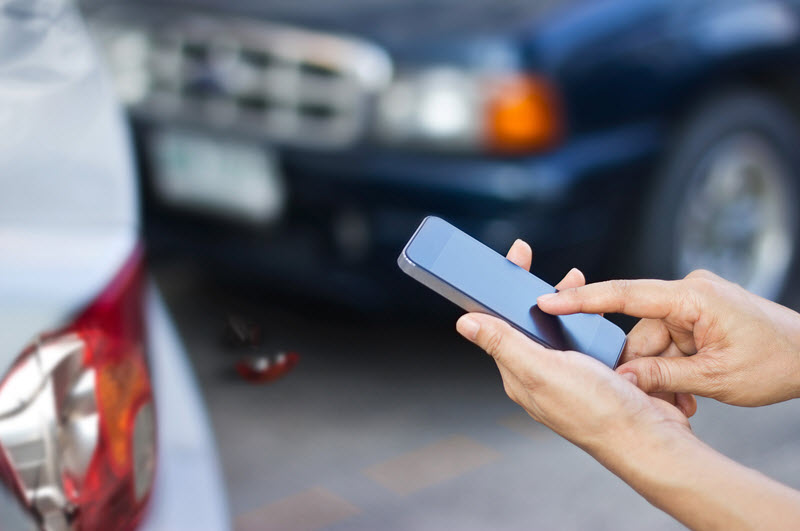Frequently asked questions about car insurance

Think you know everything you need to know about car insurance? There are some grey areas that you should be aware of. For example, does no-fault insurance mean no one is at fault in the event of an accident? You may be surprised at the answer.
Here are some common questions that insurance brokers are asked about auto insurance.
If I use my car for my job, am I covered under my employer’s auto insurance policy?
No. Whether you’re driving your car for personal use or for work, your insurance policy – not your employer’s policy - covers the vehicle. If you use your car for your job, make sure your insurance broker is aware of it so you know you have the right coverage in the event an accident, theft or damage occurs.
If my car is totalled in an accident, will my insurance pay off my loan or lease?
Not necessarily. When your car is totalled, your policy will pay the actual cash value of your car prior to the accident, taking the vehicle’s depreciation into account. If that determined value is more than what you still owe on the car loan or lease, then you’re covered. If it is less, then you are responsible for the balance owing.
If my friend borrows my car and is in an accident, does his/her insurance pay for the damage?
No. An auto insurance policy covers the vehicle—not the driver. Before you loan your car to another driver, make sure you trust that person’s driving skills. If he or she is in an accident, your insurance premiums will be affected.
No-fault insurance means that no one is at fault in an auto accident, right?
Not true. In any accident where two drivers are involved, insurance companies will always find one of the drivers to be at fault. So what is no-fault insurance? It means that regardless of who is responsible for the accident, you deal only with your insurance company when making a claim. If you are at fault, however, you can expect an increase in premiums when you renew your policy.
If I am in a minor fender bender, is it a good idea to settle with the other driver so my rates don’t go up?
Many drivers think it’s better to pay for vehicle damage out-of-pocket rather than make a claim to avoid increased premiums. But not making a claim can expose you to issues disagreements that can cause problems for you after the fact.
What if the actual cost of repairs is much higher than the original estimate? What if you’re blamed for damage that already existed on the other vehicle? What if the other driver tries to hold you liable for injuries?
Your insurance coverage will help to protect you in these cases.
In Alberta, if you’re involved in an accident, drivers have up to two years to file a claim against you. You may think the matter is settled, only to find that it comes back to haunt you later. And at that point, it will be too late for your insurance provider to help.
What is the penalty if I get charged for distracted driving?
Distracted driving is illegal in all Canadian provinces and territories, except Nunavut. The penalties include up to four demerit points in most provinces and fines (5 in Manitoba and PEI), which can cost up to $368 for the first offence and up to $888 for multiple offences – depending on the province. In BC, drivers are fined an extra $175 penalty for a first offense.
Distracted driving charges can lead to your license being suspended.
Will a parking ticket cause my rates to do up?
No. If you get a parking ticket, your driver’s license, driving record and insurance rates are not affected. However, you must pay your parking tickets – or you will not be able to get a renewal sticker for your license plate.
How can I reduce my car insurance rates?
Here are some ways you may be able to bring your auto insurance premiums down:
- Maintain a clean driving record
- Opt for a higher deductible
- If you have an older vehicle, take collision coverage off
- Bundle your home and auto insurance policies
- Install a car alarm
- Keep your vehicle parked in a garage, rather than on the street
- Inform your insurance broker if your driving circumstances change. For example, if you no longer use your vehicle for work purposes
What if I don’t have insurance and get into an accident?
No matter where you live in Canada, it’s mandatory to have car insurance if you drive a vehicle. If you’re driving in Canada without insurance, you could be slapped with a hefty fine, lose your license or face criminal charges.
If you’re in an accident and you have no insurance, you are personally responsible for paying for any personal injuries and damages to the other vehicle(s). Not to mention the cost of repairing or replacing your own vehicle.
If you leave the scene of an accident, known as a “hit and run”, you could be charged under the criminal code and receive jail time. All convictions will go on your driver’s record, making it very difficult and expensive to find an insurance company to cover you in future.
Car insurance is there to protect you in the event of an accident, theft, personal injury and damage to your vehicle. Not having the right coverage can prove to be disastrous. Make sure you understand your insurance policy, and talk to your insurance broker if you have questions or concerns.



